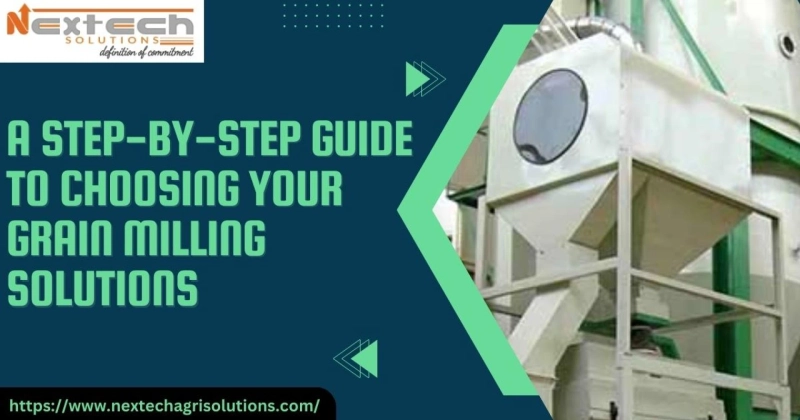Introduction
Are you ready to take your baking game to the next level? It all starts with choosing the right grain milling solution. With so many options available, it can be overwhelming to make a decision. But fear not! We've got you covered with our step-by-step guide that will help you choose the perfect grain mill for your needs. From hand-cranked models to electric mills and everything in between, get ready to transform your baking experience with freshly milled grains!
What to Consider When Choosing Grain Milling Solutions
When it comes to choosing grain milling solutions, there are a few things you'll need to take into consideration. Here are a few things to keep in mind:
-What type of grains are you looking to mill? There are different types of mills designed for different types of grains. Make sure you choose a mill that can handle the type of grain you're looking to mill.
-How much capacity do you need? Grain mills come in different sizes and capacities. If you're only looking to mill small amounts of grain, then a smaller capacity grain mill will suffice. But if you're looking to mill larger quantities of grain, then you'll need a larger capacity grain mill.
-What is your budget? Grain mills can range in price from around 1000 to over 100000. Choose a grain mill that fits your budget.
-Do you want a manual or electric grain mill? Manual grain mills require you to grind the grains yourself, while electric grain mills do the work for you. Choose whichever type of grain mill suits your needs and preferences best.
The Different Types of Grain Milling Solutions
Grain milling can be done in several different ways, each with its own advantages and disadvantages. The most common grain milling solutions are roller mills, hammer mills, and stone mills.
Roller Mills: Roller mills are the most common type of grain milling solution. They use two large rollers to crush the grain, and can be set to a very fine grind. Roller mills are fast and efficient, but they can be expensive to operate.
Hammer Mills: Hammer mills are another common type of grain milling solution. They use hammers to grind the grain into a fine powder. Hammer mills are less expensive than roller mills, but they are not as efficient.
Stone Mills: Stone mills are the oldest type of grain milling solution. They use stones to grind the grain into a fine powder. Stone mills are slower than roller mills and hammer mills, but they produce a higher quality flour.
Pros and Cons of Grain Milling Solutions
There are a lot of factors to consider when choosing grain milling solutions, and it can be tough to know which route to go. Here are some pros and cons of different grain milling solutions to help you make your decision:
-Whole grains: Pros- whole grains are less processed so they retain more nutrients; they're also more filling and satisfying. Cons- they can be more expensive, and some people prefer the taste of refined grains.
-Refined grains: Pros- refined grains are often cheaper than whole grains; they can also be more consistent in texture and flavor. Cons- refined grains are more processed so they have fewer nutrients; some people prefer the taste of whole grains.
-Grits: Pros- grits are a type of coarsely ground corn that has a hearty, slightly nutty flavor. They're usually very affordable. Cons- grits can be fairly bland on their own, so they may need to be flavored with spices or sauces.
-Polenta: Pros- polenta is made from coarsely ground cornmeal and has a creamy texture when cooked. It's versatile and can be used in sweet or savory dishes. Cons- polenta can be tricky to cook if you don't have experience with it; it can also be quite dense and heavy.



